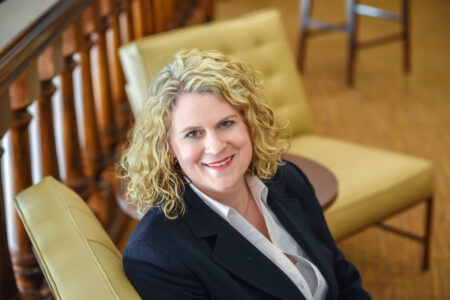Social media is everywhere, and schools must reckon with the impact it has on students, parents, schools, and communities–both good and bad. On the legal side, there exist some serious risks and challenges. We connected with school law expert and attorney Karen Haase of KSB School Law for answers to some complex questions about the legal side of digital citizenship. Here’s what she had to say.
Can you talk about the relationship between digital citizenship and some of the legal challenges and liabilities facing schools currently?
As an initial matter, we take calls almost every day from schools that are responding to inappropriate content that students have created and/or shared. We deal with students who have violated the Nebraska criminal code by creating content that would be considered child pornography and/or that would violate the prohibition against making terroristic threats.
But from a larger perspective, I think that the unregulated use of social media by students has driven a lot of the mental health issues that schools are dealing with from a legal perspective. The Surgeon General’s report that was released last spring has reinforced a lot of our concerns that students accessing social media at a young age and without adequate supports are correlated to a ton of mental health issues.
Finally, we deal with so many legal issues involving adults (both staff and parents) that stem from poor digital citizenship.
From your perspective, what should schools be thinking about in terms of monitoring their social media presence and interactions across their socials?
Generally, the legal standard for school districts to face potential legal liability for digital citizenship issues is “deliberate indifference.” That means school districts will be liable for issues that they know about and fail to respond to in an adequate manner. The problem is that so many staff members “know” about social media issues without sharing that information up the chain of command–which can create liability for the district. Social media monitoring allows the individual selected by the district to respond to these issues to actually be notified and to know about issues about which the district may already have imputed knowledge.
Thoughts on schools enacting no cell phone/no device policies?
For many, many years we have advised schools that they need to teach students how to use their phones responsibly rather than just banning them. In light of the Surgeon General’s report, we are re-examining that advice. We now have a handful of schools that require the use of lockable phone storage bags and a growing number of schools that have determined to ban access to these devices during the school day.
What’s your advice to schools looking to empower students and staff to be good digital citizens.
We cannot educate students enough on these issues. Digital citizenship training is not one class or one presentation or one discussion. It must be embedded into multiple aspects of the curriculum and be addressed across time and in different contexts.
More Resources & Information
Interested in learning more on the topic of digital citizenship in the classroom and beyond? Check out this webinar on school social media legal risks and challenges, plus insights from KSB School Law’s Bobby Truhe on rogue accounts and supporting staff as well as empowering schools to be proactive.
Catch our most timely discussion of digital citizenship and the law in our December webinar: Digital Citizenship in the Classroom: From Legal Challenges to Student Assessment.
Register Here